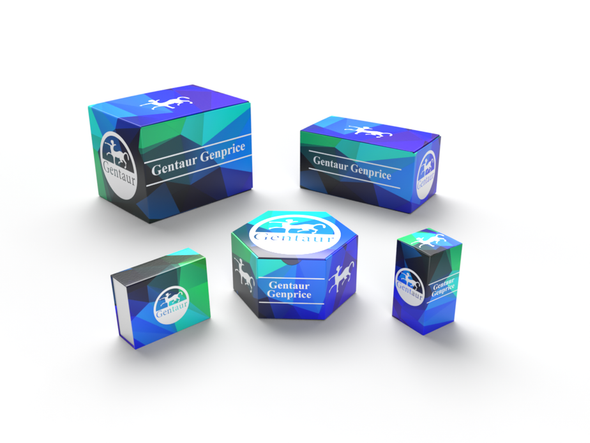740
Human Protease, Serine 1 (PRSS1) ELISA Kit | AE25629HU
- SKU:
- 740-AE25629HU
- Availability:
- Usually ships in 5 working days
Description
Human Protease, Serine 1 (PRSS1) ELISA Kit | AE25629HU | Gentaur UK, US & Europe Distribution
Species Reactivity: Human (Homo sapiens)
Abbreviation: PRSS1
Alternative Name: MGC120175; MGC149362; TRP1; TRY1; TRY4; TRYP1; cationic trypsinogen|digestive zymogen|nonfunctional trypsin 1|protease; serine; 1|serine protease 1|trypsin I|trypsinogen 1|trypsinogen A
Application: ELISA
Range: 15.6-1000 pg/mL
Sensitivity: 6.8 pg/mL
Intra-Assay: ≤5.1%
Inter-Assay: ≤10.2%
Recovery: 1, 03
Sample Type: Serum, Plasma, Other biological fluids
Detection Method: Sandwich
Analysis Method : Quantitive
Test Principale: This assay employs a two-site sandwich ELISA to quantitate PRSS1 in samples. An antibody specific for PRSS1 has been pre-coated onto a microplate. Standards and samples are pipetted into the wells and anyPRSS1 present is bound by the immobilized antibody. After removing any unbound substances, a biotin-conjugated antibody specific for PRSS1 is added to the wells. After washing, Streptavidin conjugated Horseradish Peroxidase (HRP) is added to the wells. Following a wash to remove any unbound avidin-enzyme reagent, a substrate solution is added to the wells and color develops in proportion to the amount of PRSS1 bound in the initial step. The color development is stopped and the intensity of the color is measured.
Product Overview: Trypsin-1 is a trypsinogen, which is a member of the trypsin family of serine proteases. This enzyme is secreted by the pancreas and cleaved to its active form in the small intestine. It is active on peptide linkages involving the carboxyl group of lysine or arginine. Mutations in this gene are associated with hereditary pancreatitis. This gene and several other trypsinogen genes are localized to the T cell receptor beta locus on chromosome 7. Normally, cationic trypsinogen represents approximately two-thirds of total trypsinogen, while anionic trypsinogen makes up approximately one-third. Mesotrypsinogen is a minor species, accounting for less than 5% of trypsinogens or 0.5% of pancreatic juice proteins.
Stability: The stability of ELISA kit is determined by the loss rate of activity. The loss rate of this kit is less than 5% within the expiration date under appropriate storage condition. The loss rate was determined by accelerated thermal degradation test. Keep the kit at 37°C for 4 and 7 days, and compare O.D.values of the kit kept at 37°C with that of at recommended temperature. (referring from China Biological Products Standard, which was calculated by the Arrhenius equation. For ELISA kit, 4 days storage at 37°C can be considered as 6 months at 2 - 8°C, which means 7 days at 37°C equaling 12 months at 2 - 8°C) .










